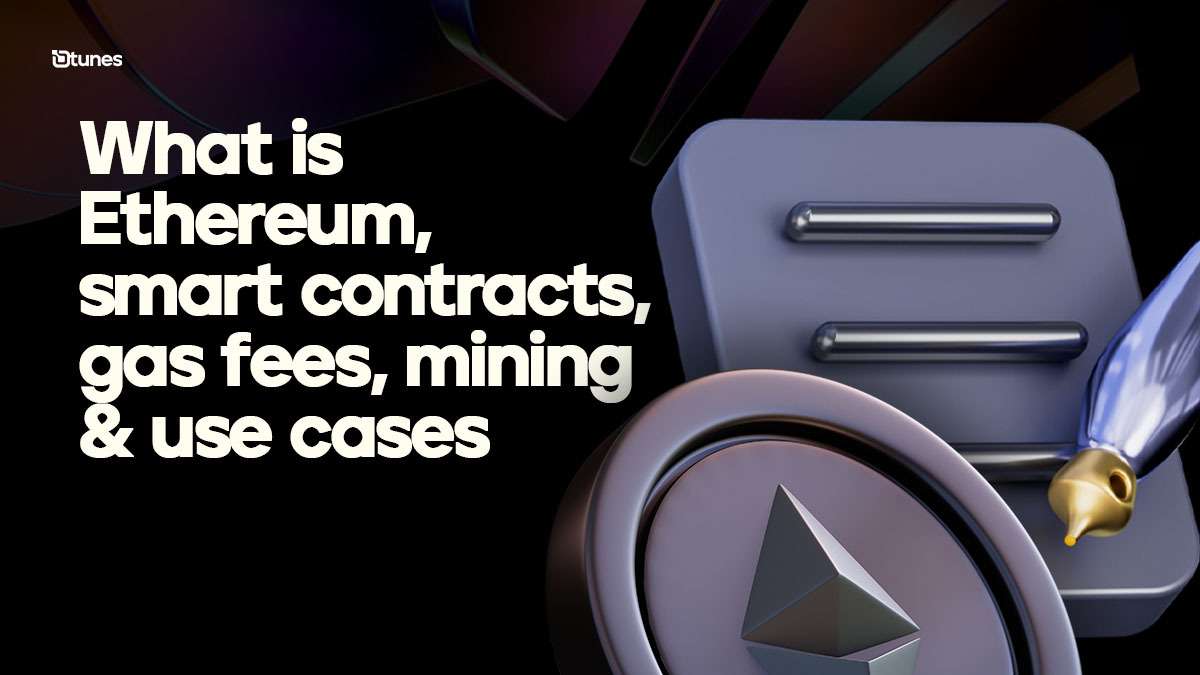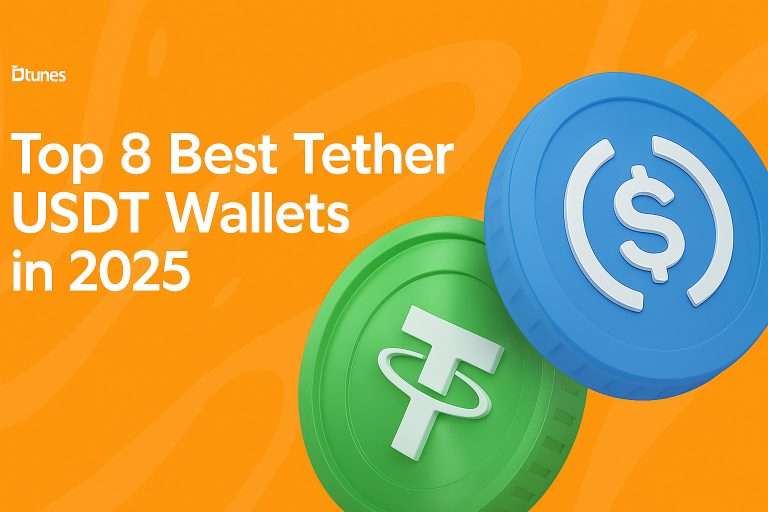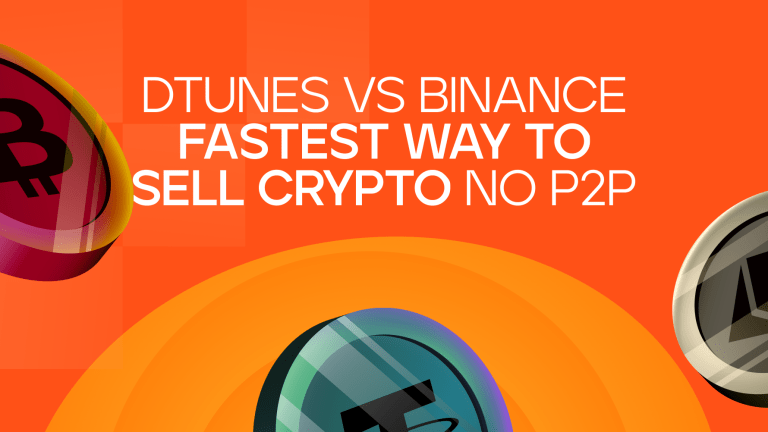
What is Ethereum, Smart Contracts, Gas Fees, Mining & Use Cases
Ethereum is often talked about in the crypto community, but what exactly is it? For Nigerians interested in cryptocurrencies, understanding Ethereum can give you a more comprehensive view of the digital asset ecosystem. This article breaks down what Ethereum is, how it works, and explains key concepts like smart contracts, gas fees, mining, and the various ways Ethereum is being used in today’s world.
What is Ethereum?
Ethereum is a decentralized blockchain platform that allows developers to build decentralized applications (dApps). It’s more than just a cryptocurrency—Ethereum serves as a global computing platform where people can create contracts, applications, and systems that operate without central authority.
Unlike Bitcoin, which focuses solely on peer-to-peer transactions, Ethereum’s blockchain is programmable, which means it allows users to build and deploy smart contracts. These contracts self-execute when conditions are met, making transactions and agreements transparent and automatic.
Ethereum is also the second-largest cryptocurrency by market capitalization, following Bitcoin. The platform was proposed by Vitalik Buterin in 2013, and development began in 2014. It officially launched in 2015 and has since grown to become one of the most widely used blockchain platforms globally.
How Does Ethereum Work?
Ethereum operates using a blockchain, similar to Bitcoin, but it differs because its blockchain is more flexible. This flexibility allows for the creation of smart contracts, which are self-executing contracts where the terms are directly written into code.
Each Ethereum transaction is validated by miners or validators (under Ethereum 2.0) who confirm and add the transaction to the blockchain. Every time you make a transaction or interact with a dApp on Ethereum, you need to pay “gas fees,” which are the transaction fees required to power the network.
In essence, Ethereum functions as a decentralized “world computer,” where computations and processes happen across a distributed network of computers rather than relying on a central authority.
About Ether (ETH) – Ethereum’s Native Cryptocurrency
Ether (ETH) is the native cryptocurrency of the Ethereum network. It’s used for transactions, paying for transaction fees (gas), and as a store of value. In many ways, it’s like Bitcoin but with broader functionality due to Ethereum’s programming capabilities.
Ether is traded on exchanges and used in various applications built on the Ethereum platform. It’s the fuel that powers Ethereum and ensures the network’s security and smooth operation. When you send ETH, you’re making a transaction, and you’ll need to pay a gas fee in ETH as well.
About Ethereum Transactions
Transactions on Ethereum are a bit different from Bitcoin transactions. When you make a transaction on the Ethereum network, you’re either transferring Ether (ETH) or interacting with a smart contract or decentralized application (dApp).
Ethereum transactions are usually fast and efficient, but they are often subject to fluctuating gas fees, depending on network congestion. Gas fees are essentially the cost you pay to miners for validating and processing your transaction. This brings us to the next crucial concept—Ethereum gas fees.
About Ethereum Gas Fees
Gas fees are the transaction fees you pay to use the Ethereum network. These fees are paid in ETH and go to miners (or validators in the Ethereum 2.0 Proof of Stake system) who process your transactions.
The amount of gas needed for a transaction depends on its complexity. Simple transactions like transferring Ether require less gas, while more complex operations like executing a smart contract require more gas.
Gas fees can fluctuate based on network demand. For example, during times of high traffic or when there are major events on the network (like NFT launches or DeFi projects going live), gas fees can increase. This is because miners prioritize transactions that offer higher fees.
About Ethereum Wallets
To interact with Ethereum, you need an Ethereum wallet. Wallets are software or hardware tools that store your Ether (ETH) and allow you to interact with the Ethereum network. There are various types of Ethereum wallets, such as:
- Hot Wallets: These are online wallets, which are convenient but more vulnerable to hacking.
- Cold Wallets: These are offline wallets (like hardware wallets), offering higher security but less convenience.
- Web Wallets: These are online wallets that can be accessed through your browser.
- Mobile Wallets: Apps designed for phones that let you store and interact with ETH on the go.
Wallets also allow you to send and receive ETH, interact with dApps, and track your transactions.
Buying and Storing Ether
Buying Ether is straightforward—simply sign up for an exchange like Binance or Coinbase. After purchasing ETH, you can transfer it to your wallet for safekeeping.
When storing your Ether, ensure you use a reputable wallet. Consider using a cold wallet (like a Ledger or Trezor) for long-term storage to keep your assets secure from hacking or online threats.
Selling and Cashing Out Ethereum
To sell your Ethereum and cash out into Naira (or any fiat currency), you can use peer-to-peer platforms or crypto exchanges that support the conversion. In Nigeria, platforms like dtunes.ng allow you to sell your Ethereum and convert it into Naira for easy withdrawal to your bank account.
Ethereum as a Smart Contract Platform
One of Ethereum’s most revolutionary features is its ability to support smart contracts. Smart contracts are digital agreements written in code that automatically execute when certain conditions are met. This removes the need for intermediaries (like banks or lawyers), streamlining processes and reducing costs.
For example, in real estate, a smart contract could automatically transfer ownership of property once payment is made. Similarly, in the finance sector, decentralized finance (DeFi) protocols use smart contracts to facilitate lending and borrowing without banks.
About Ethereum Mining and Consensus
Ethereum uses a proof-of-work (PoW) consensus mechanism (similar to Bitcoin) to validate transactions and secure the network. In PoW, miners compete to solve complex mathematical puzzles, and the first to solve the puzzle adds a block to the blockchain, earning a reward in ETH.
However, Ethereum is transitioning to Ethereum 2.0, which uses a proof-of-stake (PoS) model. In PoS, validators put up their own ETH as collateral to validate transactions, and they are rewarded for honest behavior. This shift aims to make Ethereum more energy-efficient and secure.
What are some of Ethereum’s Use Cases?
Ethereum has several use cases, including:
- DeFi (Decentralized Finance): Ethereum supports decentralized exchanges (DEXs), lending platforms, and stablecoins, which are all part of the DeFi ecosystem.
- NFTs (Non-Fungible Tokens): Ethereum is the backbone of the booming NFT market, where artists, musicians, and creators tokenize their work.
- Supply Chain Management: Ethereum’s transparency and immutability make it ideal for tracking products as they move through a supply chain.
- Gaming: Ethereum-based games let players truly own their in-game assets, such as weapons, skins, and avatars.
- Identity Verification: Ethereum can be used to create decentralized identity systems, offering users control over their personal data.
The Security and Risks Associated with Ethereum
While Ethereum is generally secure, it is not without risks. As with any blockchain, Ethereum is susceptible to bugs in smart contracts, potential hacking attempts, and the risks associated with centralization in mining or staking pools. It’s essential to research any dApp or contract before interacting with it to avoid loss of funds.
Additionally, Ethereum’s network can become congested, leading to high gas fees, which could be a deterrent for some users.
The Future of Ethereum
Ethereum’s future is promising, particularly with the ongoing upgrade to Ethereum 2.0. The transition to proof-of-stake will enhance scalability, reduce energy consumption, and improve transaction speeds. Additionally, Ethereum’s dominance in DeFi and NFTs suggests its continued relevance in the blockchain space.
With Ethereum’s continuous development, it’s likely to remain a cornerstone of the blockchain ecosystem, providing a platform for decentralized applications, digital finance, and more.
Frequently Asked Questions (FAQs) About Ethereum
1. What is Ethereum used for?
Ethereum is used for creating decentralized applications (dApps), executing smart contracts, and transferring value through Ether (ETH).
2. What are gas fees, and why do they fluctuate?
Gas fees are the costs associated with executing transactions or smart contracts on the Ethereum network. They fluctuate based on network demand and transaction complexity.
3. Is Ethereum mining profitable?
Mining Ethereum can be profitable but requires significant investment in hardware and electricity. Ethereum is transitioning to Ethereum 2.0, which will make mining obsolete in favor of staking.
4. How secure is Ethereum?
Ethereum is secure due to its decentralized nature and proof-of-work consensus. However, vulnerabilities can exist in smart contracts, and caution is advised when interacting with unknown contracts or platforms.
Godwin has spent the last 5 years making SEO magic happen and now leads as SEO Manager at Dtunes. When he’s not tweaking search rankings, you’ll catch him vibing to music, playing games, or hanging out with friends.



